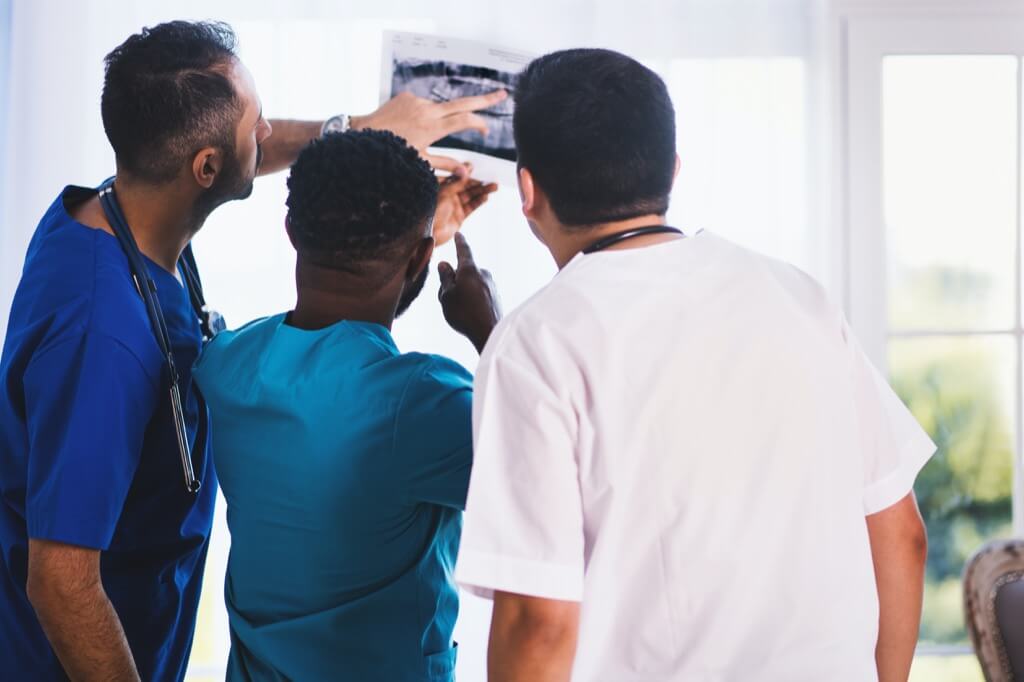There is some good news of you are thinking of turning your life around be entering an alcohol rehab program, according to a recent medical study the benefits of alcohol rehab begin to manifest themselves in a positive way far quicker than anyone could have previously predicted.
The study indicates that only after a few short weeks of intensive and comprehensive alcohol rehab treatment did patients began to show quite a remarkable improvement in their physical health and their mental well-being. The results of this new research have really encouraged South African alcohol rehab centres to keep moving forward with their various treatment programs.
The actual testing and research that was done were very conclusive and were conducted by an Australian university. The Illawarra Institute for Mental Health, under the auspices of the University of Wollongong conducted these medical studies and trials on hundreds of different alcohol rehab patients at the local Salvation Army alcohol rehab centre.
The alcohol rehab situation in Australia is quite good with the Salvation Army running the bulk of all Australian alcohol rehab centres. The Salvation Army currently runs at least three major rehab centres with a capacity of over five hundred beds in each of the alcohol rehab centres in New South Wales, Queensland and the Australian Capital Territory.
The average time that it took the majority of patients in any of the alcohol rehab trials was around three weeks which is quite astounding. After the three week period the majority of alcoholics tested showed positive signs of improvement in mental capacity as well as an ability to cope better with their alcoholic statuses, this is in terms of how they see themselves as well as how they see their future after completing the alcohol rehab treatment course.
This news of positive tests in Australia is perhaps just what a number of South African need to hear, instead of hesitating to enter an alcohol rehab facility based on any fears that it may not work, they can now move forward confidently knowing that the alcohol rehabilitation treatment is indeed a success, as long as you are willing to accept help and believe in a positive outcome.
Dual Diagnosis Drug Rehabs in South Africa
A co-occurring disorder or dual diagnosis is when you have both a substance abuse problem and a mental health issue like depression, bipolar disorder, or anxiety. Achieving recovery from substance abuse, alcoholism, or drug addiction is difficult enough without adding in mental health issues. There are numerous programs for treating drug, alcohol, and other substance abuse. The difficulty in navigating available treatment options and individual needs can often prevent people from seeking help.
Those who are lucky enough to have never needed rehab may not be aware of this, but South Africa has some of the best rehab facilities worldwide. In Johannesburg, Cape Town and Pretoria, there are well-established treatment centres with excellent programmes to help those suffering from addiction become better. Outside the city, there are also centres in the countryside that allow for a more peaceful place to heal.
Diagnosis Treatment options vary depending on the severity of the issue. Treatment options include inpatient and outpatient programs. Many addicts choose long-term residential treatment to kick their habit. With so many options, you might think it’s simple for an addict to get clean – just pick one and go. Every rehab has a unique program to help addicts heal, and while active participation is required, each rehab approaches healing in a unique way.
Just as every doctor treats a different disease, every rehab treats addiction differently, and sometimes the user and the rehab don’t mesh. This is sad, because the user leaves rehab before the program is finished. Your sobriety is vital, which is why picking the right rehab is crucial. The right program will increase your chances of finishing successfully, leaving sober, and maintaining your sobriety after you return home.
This isn’t ideal, but it’s impossible to control because everyone is different, so if you’re considering a rehab facility, make sure it has a good physical detox program and then ongoing support so you can always go back for help. The best rehab centres usually include both group and individual sessions. Diverse types of therapy focus on teaching skills to maintain sobriety and avoid relapsing.
One of the most common reasons for choosing one rehab over another is cost. Sadly, rehab is not cheap, and a private room in a good facility can cost over R100,000. Choosing the right rehab program requires a lot of evidence-based therapy in personalised sessions which can get expensive. Many rehab centres are contracted with medical aid plans, so asking for details may help you get into a good facility. Government facilities are also available, but they should be used as a last resort by those who truly want to heal and overcome their addiction. But this is South Africa and private rehab is the best option.

We’ve all watched it on television – a middle-aged character suddenly clutching their chest, their…

The hormones in your body and brain perform crucial functions. Anxiety and irritability are symptoms…

Our homes have become our gyms in the wake of the global health crisis, proving…
Genetic Vulnerability and Treatment Innovations in Addiction Recovery
Addiction is a complex disorder influenced by a combination of genetic, neurological, and environmental factors. Emerging research has shed light on how genetic predisposition plays a significant role in substance dependence, particularly through its effects on brain structures like the lateral habenula—a region responsible for processing negative feedback and regulating decision-making. Understanding the genetic basis of addiction can revolutionize treatment approaches, shifting the focus from purely behavioral interventions to targeted medical and neurological therapies that address the root biological causes.
The Role of the Lateral Habenula in Addiction
The lateral habenula (LHb) is a small but crucial brain region that helps regulate reward and punishment responses. It plays a key role in helping individuals recognize negative consequences, discouraging behaviors that lead to harm. Research suggests that some people have a genetically less active lateral habenula, which reduces their ability to associate substance use with its negative effects. This may explain why some individuals struggle to control alcohol or drug consumption, as their brains do not register the typical deterrent signals.
In cases of alcohol dependence, for example, those with lower habenula activity may not feel the full negative consequences of excessive drinking, making it harder to moderate their intake. Instead of feeling deterred by hangovers, poor decision-making, or the long-term health risks of alcohol use, their brains process these experiences differently, reinforcing compulsive behavior rather than discouraging it.
Genetic Factors and Addiction Risk
Several studies have highlighted the genetic component of addiction, showing that individuals with a family history of substance use disorders are at a significantly higher risk. According to the National Institute on Drug Abuse (NIDA), at least 40–60% of an individual’s risk for addiction is linked to genetic factors. Specific genes influence how the brain responds to drugs and alcohol, including those that affect dopamine receptors, impulse control, and stress regulation.
A study published in Nature Neuroscience found that variations in certain dopamine-related genes make individuals more susceptible to addiction. Those with a genetic predisposition for lower dopamine receptor activity may seek external stimulation—such as drugs or alcohol—to compensate for their brain’s natural reward deficiencies.
The implications of genetic vulnerability extend beyond just substance use. Individuals who inherit these traits may also be more prone to gambling addiction, compulsive behaviors, and risk-taking tendencies, making it essential to address addiction from a biological as well as a psychological perspective.
New Treatment Targeting the Brain Directly
Traditional addiction treatments, such as counselling, cognitive-behavioral therapy, and support groups, remain valuable, but understanding genetic influences opens new doors for more effective, brain-targeted treatments. Scientists are now exploring medical and neurological interventions that could help regulate the lateral habenula and dopamine systems, reducing cravings and preventing relapse.
1. Medications to Enhance Brain Function
New pharmaceutical approaches are being developed to modulate lateral habenula activity, improving an individual’s ability to recognize negative consequences and regulate substance intake. Some promising treatments include:
- NMDA Receptor Modulators: Drugs like ketamine, already used for depression, are being studied for their potential to restore habenula function and reduce cravings.
- Dopamine Stabilizers: Medications targeting dopamine dysregulation, such as naltrexone and varenicline, may help correct brain imbalances that drive compulsive substance use.
- Anti-Craving Medications: Drugs that modulate glutamate and serotonin pathways, such as acamprosate, have shown promise in helping individuals with alcohol dependence regain control over their drinking.
2. Neuroplasticity-Based Therapy
Neuroscientists have found that the brain’s ability to reorganize and adapt—known as neuroplasticity—can be harnessed to reverse damage caused by long-term addiction. This means that targeted therapies could help retrain the brain’s reward and punishment systems, restoring a healthier balance. Some of these include:
- Transcranial Magnetic Stimulation (TMS): A non-invasive brain stimulation technique that has shown promising results in reducing drug cravings and withdrawal symptoms by stimulating key regions of the brain.
- Deep Brain Stimulation (DBS): An experimental treatment using electrodes implanted in the brain to regulate activity in addiction-related circuits, showing early success in severe substance use cases.
- Behavioral Neurotherapy: Therapies like biofeedback and mindfulness training can help individuals strengthen cognitive control and emotional regulation, reducing impulsivity and relapse risk.
The Future of Addiction Treatment in South Africa
In South Africa, where substance use disorders contribute to significant public health and socio-economic challenges, advancements in addiction treatment are crucial. The South African Community Epidemiology Network on Drug Use (SACENDU) reports that alcohol remains the most abused substance in the country, with one in three South Africans engaging in hazardous drinking behavior.
Despite growing scientific evidence on genetic vulnerability, addiction treatment in South Africa is still largely behavioral and rehabilitation-based, with limited access to advanced neurological or pharmaceutical interventions. Increasing awareness of genetic predisposition and its role in addiction can help reshape treatment strategies, integrating neuroscience-driven approaches into rehabilitation centers, mental health services, and harm-reduction programs.
https://www.relapseprevention.co.za/drug-rehab-in-south-africa/
https://www.recoverydirect.co.za/what-is-evidence-based-addiction-treatment/




